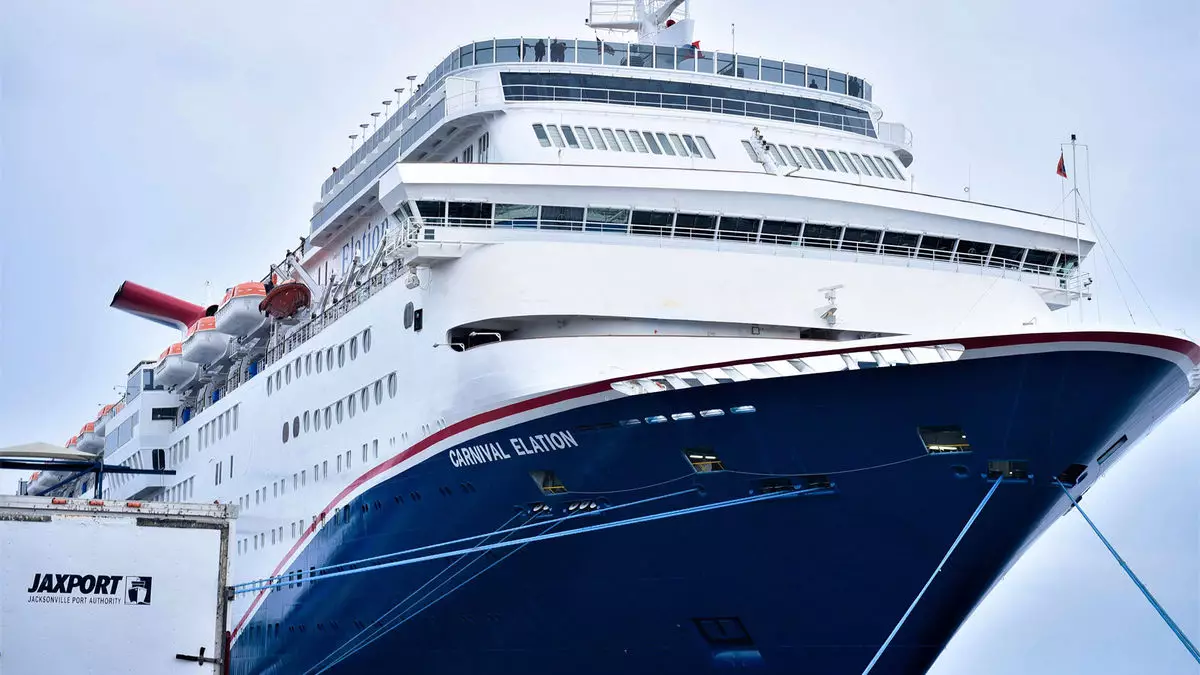As Hurricane Milton disrupts normal operations along Florida’s coast, the fallout has been particularly pronounced for the cruise industry. With several cruise ships at sea unable to return to their homeports due to port closures, it is shaping up to be a significant challenge for cruise lines, crews, and passengers alike. The storm has not only delayed scheduled arrivals but also forced companies to revise itineraries and make last-minute cancellations, which can have lasting repercussions for travelers and the broader tourism economy.
Ports serve as critical hubs for cruise ships, and the closure of Port Tampa Bay since October 10 underscores how weather events can severely affect maritime operations. While preliminary assessments indicated that although some buildings sustained damage, dock infrastructures remained largely intact, the absence of power and ongoing flooding concerns present formidable challenges. With access limited and alternate routes potentially hazardous, cruise operators find themselves in a precarious position as they navigate these disruptions.
The U.S. Army Corps of Engineers, along with the U.S. Coast Guard, are working tirelessly to evaluate the readiness of these ports. The urgency of the situation has led them to prioritize immediate assessments to facilitate the safe return of cruise ships while also ensuring the safety of port workers. The process underscores the interconnected nature of the cruise industry with regional infrastructure and how natural disasters can expose vulnerabilities in both.
With the Carnival Paradise and other Royal Caribbean vessels anchored offshore, the plight of stranded travelers has become a salient point of discussion. Passengers aboard the Carnival Paradise, which had embarked on a four-day voyage on October 6, are anxiously awaiting news of their ship’s return. The ripple effect of these delays is apparent as Carnival has had to cancel the Paradise’s scheduled cruise on October 10.
Fitness and recreational activities onboard, normally a source of enjoyment, have turned into a waiting game for guests who had been anticipating their return to Tampa. Concerns grow over logistics and accommodations in the event of extended delays, with many passengers left pondering their travel plans and potential adjustments to itineraries. The uncertainty also impacts overall passenger satisfaction, raising questions about how cruise lines will manage customer expectations in these trying circumstances.
The situation is not confined to Tampa alone. Port Canaveral’s shutdown has had a cascading effect on several cruise lines, notably impacting Disney Cruise Line with the cancellation of the Disney Wish’s October 11 sailing. This raises important considerations for businesses reliant on cruise tourism, underscoring how interconnected the cruise lines are in terms of scheduling, as ships are often dependent on shared docking facilities.
Even in Miami, where the port remains open, conditions are not ideal. With marine operations restricted due to the potential danger from the storm, Carnival has announced that the Carnival Sunrise’s return will be delayed by a day. Moreover, such adjustments force cruise lines to grapple with itinerary modifications, ensuring that recreational activities and planned excursions align with any schedule changes.
As the industry confronts the immediate impacts of Hurricane Milton, there are wider implications for its future. The reliance on coastal ports makes the cruise sector particularly vulnerable to climate-related disruptions. This reality raises critical questions about resilience planning and preparedness for cruise lines operating in such risky environments, especially as extreme weather events become more frequent.
The economic ramifications of these cancellations could also affect the cruise industry’s viability in the long run. Fluctuating operational costs, potential infrastructure repairs, and the risk of lower passenger turnout in the face of repeated disturbances create a scenario where financial stability could be jeopardized. The industry must therefore re-strategize and innovate to ensure that it can withstand such challenges while retaining passenger trust and confidence.
Hurricane Milton’s arrival has not just delayed the immediate return of several cruise ships but also revealed the fragility of the cruise industry’s operational framework. As ports work diligently to reopen, the focus must be on both recovery and future resilience, ensuring that the industry can navigate the turbulent waters of both the storm and the unpredictability of climate change.


Napsat komentář